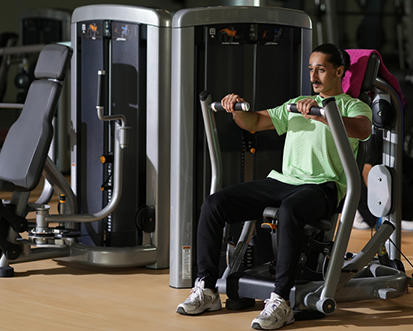
by hasan | Aug 22, 2024 | Quick Reads
Family is so important because of all the love and support it provides. Being with family helps construct principles and improves overall mental health. Spending time with family is key to a person’s development as it promotes adaptability and resilience. Such key lessons can only be taught by family members coaching each other regarding life’s ups and downs. Family is what makes us who we are.
A recent recognized study showed that participants’ stress, happiness, and well-being levels were better predicted by their social circle strength than by the physical health data collected on a fitness tracker. This shows just how important time with family (or close friends you call family) is to your physical and mental health and why family is important.
The benefits of spending time with family is such a critical component of a full, meaningful life. Remember, family doesn’t necessarily have to be considered blood relatives. Close friends, a guardian, or step-siblings are well within the realm of who you consider family. Here is a list of health benefits that may answer the question, “Why is family important?”
- Improves Mental Health
- Helps Children Perform Well Academically
- Lowers Risk Of Behavioral Problems
- Boosts Self-Confidence
- Helps Kids Learn Future Parenting Skills
- Teaches Effective Conflict Resolution
- Reduces Stress
- Promotes Adaptability And Resilience
- Enhances Physical Health
- Lengthens Life Expectancy

by hasan | Aug 22, 2024 | Quick Reads
This calming breathing technique for stress, anxiety and panic takes just a few minutes and can be done anywhere. You will get the most benefit if you do it regularly, as part of your daily routine.
You can do it standing up, sitting in a chair that supports your back, or lying on a bed or yoga mat on the floor. Make yourself as comfortable as you can. If you can, loosen any clothes that restrict your breathing.
If you’re lying down, place your arms a little bit away from your sides, with the palms up. Let your legs be straight or bend your knees so your feet are flat on the floor. If you’re sitting, place your arms on the chair arms.
If you’re sitting or standing, place both feet flat on the ground. Whatever position you’re in, place your feet roughly hip width apart.
- Let your breath flow as deep down into your belly as is comfortable, without forcing it.
- Try breathing in through your nose and out through your mouth.
- Breathe in gently and regularly. Some people find it helpful to count steadily from 1 to 5. You may not be able to reach 5 at first.
- Then let it flow out gently, counting from 1 to 5 again, if you find this helpful.
- Keep doing this for at least 5 minutes.

by hasan | Aug 22, 2024 | Quick Reads
There’s nothing like THRIVING! Feeling good, energetic, and at the top of your game in and out of the office. While not every day will be as perfect, you can strive to create a healthy lifestyle that benefits your body and your work and personal life.
- Declutter your desk by placing things back where they belong and rearranging office essentials in storage trays, holders, or bins.
- Set an alarm on your watch or phone to go off every 50 minutes. When it does, get up and stretch, walk around, and drink water.
- Indulge in meditation to create a routine that works for you. You can set a time to do this at the office with a few coworkers by booking a space at AlWaha, or by registering to one of the Thrive programs.
- Invite co-workers for a group fitness program as a fun way to blow off steam after working hours.
- Prepare nutritious home-cooked meals in advance for the week or rely on the healthy options at AlWaha’s cafeteria.
- Sit on a yoga ball while working instead of a chair to improve your posture, stability, and core strength.
- Get plants for your cubicle to create a space of zen and comfort while you work.
Your Thrive journey starts by visiting the Thrive team at AlWaha in the Zahid Business Park during regular working hours; stop by and say Hello.

by hasan | Aug 22, 2024 | Quick Reads
Eating a healthy, balanced diet is one of the most important things you can do to protect your health. In fact, up to 80% of premature heart disease and stroke can be prevented through your life choices and habits, such as eating a healthy diet and being physically active.
A healthy diet can help lower your risk of heart disease and stroke by:
- improving your cholesterol levels
- reducing your blood pressure
- helping you manage your body weight
- controlling your blood sugar.
Here are five tips from the experts:
- Prepare most of your meals at home using whole or minimally processed foods. Choose from a variety of different proteins to keep things interesting. Using catchy names for each day can help you plan. Try “Meatless Monday”
- Make an eating plan each week – this is the key to fast, easy meal preparation.
- Choose recipes with plenty of vegetables and fruit. Your goal is to fill half your plate with vegetables and fruit at every meal. Choose brightly coloured fruits and vegetables each day, especially orange and dark green vegetables. Frozen or canned unsweetened fruits and vegetables are a perfect alternative to fresh produce.
- Avoid sugary drinks and instead drink water. Lower-fat, unsweetened milk is also a good way to stay hydrated. Keep a reusable water bottle in your purse or car so you can fill up wherever you are going.
- Eat smaller meals more often. Eat at least three meals a day with snacks in between. When you wait too long to eat you are more likely to make unhealthy food choices. Keep easy-to-eat snacks in your purse or bag for emergencies.
Your Thrive journey starts by visiting the Thrive team at AlWaha in the Zahid Business Park during regular working hours; stop by and say Hello.

by hasan | Aug 22, 2024 | Quick Reads
Here are some great ways of reducing stress as recommended by the United Kingdom’s NHS:
Be active: Exercise won’t make your stress disappear, but it can reduce some of the emotional intensity that you’re feeling, clearing your thoughts and letting you deal with your problems more calmly.
Take control: If you think you cannot do anything about your problem, your stress can get worse. That feeling of loss of control is one of the main causes of stress and lack of wellbeing. The act of taking control is in itself empowering, and it’s a crucial part of finding a solution that satisfies you and not someone else.
Connect with people: A good support network of colleagues, friends and family can ease your work troubles and help you see things in a different way. The activities we do with friends can help us relax and relieve stress. Talking things through with a friend may also help you find solutions to your problems.
Have some “me time”: Many of us work long hours, meaning we often don’t spend enough time doing things we really enjoy. It’s important to take some time for socialising, relaxation or exercise. You could try setting aside a couple of nights a week for some quality “me time” away from work.
Challenge yourself: Setting yourself goals and challenges, whether at work or outside, such as learning a new language or a new sport, can help build confidence. This may help you deal with stress. It can also make you want to do things and be active.
Avoid unhealthy habits: Don’t rely on smoking and caffeine as your ways of coping. They might provide temporary relief, but in the long term, these crutches won’t solve your problems. They’ll just create new ones. It’s best to tackle the cause of your stress.
Help other people: Evidence shows that people who help others, through activities such as volunteering or community work, often become more resilient. If you don’t have time to volunteer, try to do someone a favour every day. It can be something as small as helping someone cross the road or going on a coffee run for colleagues.
Work smarter, not harder: Working smarter means prioritising your work, concentrating on the tasks that’ll make a real difference. Leave the least important tasks to last. Accept that you will not have time for everything.
Try to be positive: Look for the positives in life, and things for which you’re grateful. Try writing down 3 things that went well, or for which you’re grateful, at the end of every day.
Accept the things you can’t change: Changing a difficult situation isn’t always possible. Try to concentrate on the things you do have control over.
Your Thrive journey starts by visiting the Thrive team at AlWaha in the Zahid Business Park during regular working hours; stop by and say Hello.

by hasan | Aug 22, 2024 | Quick Reads
Workplace wellness refers to health promotion activities or policies that support positive employee health and behaviour. From medical screenings and health education fairs to fitness programs and healthcare memberships, there are plenty of ways that we are fostering a culture of good health.
One will find that happy employees tend to perform better, actively take up work initiatives, improve productivity, and manage time efficiently.
Zahid Group is committed to investing the time, resources, and policies to support meaningful employee health endeavours. Workplace wellness is even more important today, given the social, economic, and political climate of the world in which we live.
To achieve workplace wellness, Zahid Group has implemented Thrive and is exploring the different avenues of healthcare that can benefit employees.
Your Thrive journey starts by visiting the Thrive team at AlWaha in the Zahid Business Park during regular working hours; stop by and say Hello.






